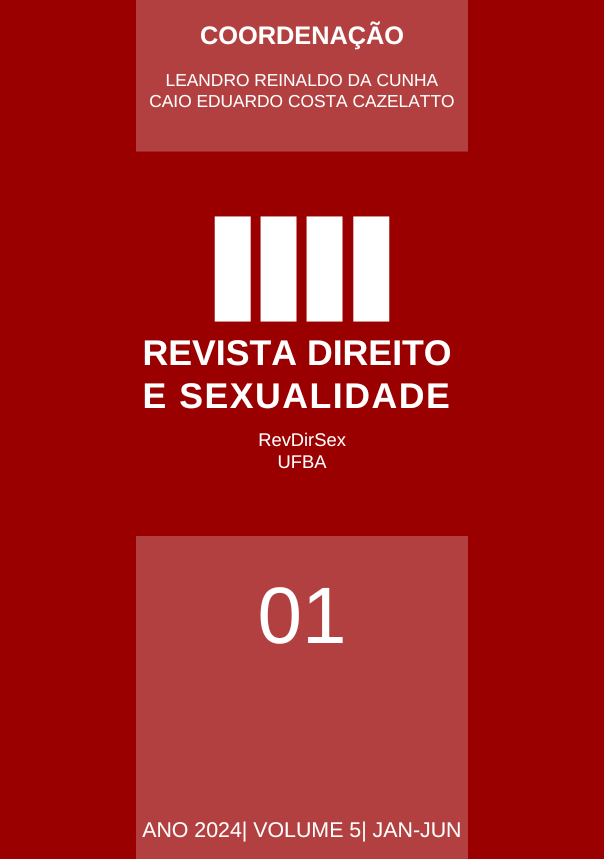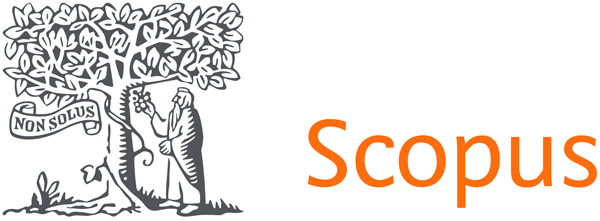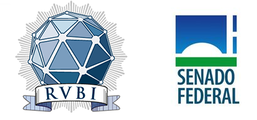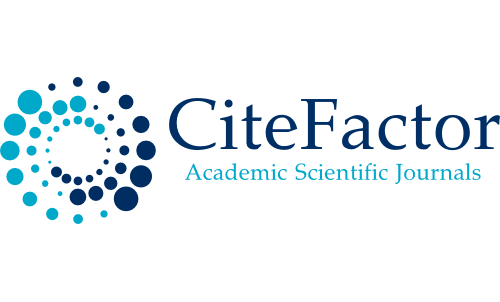O TRABALHO DAS MULHERES COMO MÓVEL NA CONCESSÃO DA INDICAÇÃO GEOGRÁFICA DE PROCEDÊNCIA DOS DOCES DE PELOTAS-RS
DOI:
https://doi.org/10.9771/rds.v5i1.60132Palavras-chave:
Indicação Geográfica, Propriedade Intelectual, Doces de Pelotas, Igualdade de gênero, Trabalho das mulheresResumo
O presente estudo aborda a importância do labor feminino para a obtenção da Indicação Geográfica (IG) de Procedência dos Doces de Pelotas no Rio Grande do Sul. Busca-se demonstrar o papel fundamental atribuído às doceiras na trajetória de construção do modo peculiar dos fazeres dos doces de Pelotas, unindo tradição, cultura e inovação, num ambiente que agrega o desenvolvimento social, econômico e sustentável. Adota-se na pesquisa o método de abordagem dedutivo e de procedimento o estudo de caso da IG, a partir da Associação Doce Pelotas. A técnica empregada é a pesquisa bibliográfica e documental. Ao final, o presente estudo evidencia que a importância do trabalho feminino como essencial para a obtenção da IG de Procedência dos Doces de Pelotas, promovendo a preservação da tradição, a excelência na produção e o empoderamento das mulheres, além de impulsionar o desenvolvimento socioeconômico da região, a preservação da cultura e a sustentabilidade, de acordo com os ODS.
Downloads
Referências
ARRUDA, Paulo Roberto Lisboa. Indicação Geográfica como Promotora do Desenvolvimento Territorial Sustentável: os Casos da Região do Vales da Uva Goethe e Banana da Região de Corupá. Programa de Pós-Graduação em Propriedade Intelectual e Transferência de Tecnologia para Inovação. Universidade Federal de Santa Catarina. Florianópolis, 2021. Disponível em: https://repositorio.ufsc.br/handle/123456789/229063. Acesso em: 07 jun 2023.
ASSOCIAÇÃO DOCE PELOTAS (ADP). Associação. Disponível em: http://docesdepelotas.org.br/site/associacao/. Acesso em: 17 jun 2023.
BERGAMASCHI, Joice Duarte Gonçalves; MUÑOZ, Rebeca Isabel; GOMES, Arosemena 2Sergio Alves. Sustentabilidade como um valor. Revista Eletrônica Direito e Política da UNIVALI, Itajaí, v.13, n.3, 3º quadrimestre de 2018.
BRASIL. Constituição da República Federativa do Brasil. 51 ed. Brasília: Câmara dos Deputados, 1988.
BRASIL. Lei n. 9.279, de 14 de maio de 1996. Regula direitos e obrigações relativos à propriedade industrial.
CHIATTONE, Michele Vasconcellos; Chiattone, Priscila Vasconcellos; Souza, Carlos Renato Rocha de; Pereira, Daniel Vianna. A importância do evento Fenadoce para a cidade de Pelotas R/S e a percepção dos visitantes sobre a 20ª edição. VII Seminário de Pesquisa em Turismo do Mercosul. Universidade de Caxias do Sul, 2012.
CUNHA, Camila Biral Vieira da. Indicações Geográficas: Regulamentação Nacional e Compromissos Internacionais. Disponivel em: https://www.teses.usp.br/teses/disponiveis/2/2135/tde-03072012-132746/publico/Versao_completa_Camila_Biral_Vieira_da_Cunha.pdf. Acesso em 25 jul 2023.
CUVELIER, C.; CABARAUX, J.F.; DUFRASNE, I. et al. Comparison of composition and quality traits of meat from young finishing bulls from Belgian Blue, Limousin and Aberdeen Angus breeds. Meat Science, v.74, n.3, p.522-531, 2006.
DAMASCENO, Athos. Doces de Pelotas. Porto Alegre: Globo.1959.
FENADOCE. Festa Nacional do Doce. Disponível em: https://fenadoce.com.br/. Acesso em: 10 ago 2023.
FREITAS, Juarez. Sustentabilidade: novo prisma hermenêutico. Novos Estudos Jurídicos, Itajaí (SC), v. 23, n. 3, p. 940–963, 2018.
INSTITUTO BRASILEIRO DE GEOGRAFIA E ESTATÍSTICA (IBGE). Pelotas, RS. Produto Interno Bruto (PIB). Disponível em https://www.ibge.gov.br/cidades-e-estados/rs/pelotas.html. Acesso em: 22 jun 2023.
INSTITUTO NACIONAL DA PROPRIEDADE INDUSTRIAL (INPI). Manual de Indicações Geográficas. 2ª ed. Rio de Janeiro, 2023a. Disponível em: https://manualdeig.inpi.gov.br/projects/manual-de-indicacoes-geograficas/wiki/Manual_de_Indica%C3%A7%C3%B5es_Geogr%C3%A1ficas. Acesso em 15 jul 2023.
INSTITUTO NACIONAL DA PROPRIEDADE INDUSTRIAL (INPI). Normas do INPI. Disponível em: https://www.gov.br/inpi/pt-br/backup/centrais-de-conteudo/legislacao/copy_of_Resolues001a0792013Documentonico.pdf. Acesso em: 04 ago 2023.
INSTITUTO NACIONAL DA PROPRIEDADE INDUSTRIAL (INPI). Ficha Técnica de Indicação Geográfica: Pelotas. Disponível em: https://www.gov.br/inpi/pt-br/servicos/indicacoes-geograficas/arquivos/fichas-tecnicas-de-indicacoes-geograficas/Pelotas.pdf. Acesso em: 18 jun 2023.
INSTITUTO NACIONAL DA PROPRIEDADE INDUSTRIAL. Ministério da Economia. IPHAN-Dossiê de Registro da Região Doceira de Pelotas e Antiga Pelotas (Arroio do Padre, Capão do Leão, Morro Redondo e Turuçu) /RS.
INSTITUTO DO PATRIMÔNIO HISTÓRICO E ARTÍSTICO NACIONAL (IPHAN). Tradições Doceiras de Pelotas (RS) se tornam patrimônio imaterial. Disponível em: http://portal.iphan.gov.br/noticias/detalhes/4642 . Acesso em: 23 jul 2023.
INSTITUTO DE PESQUISA ECONÔMICA APLICADA (IPEA). Objetivo de Desenvolvimento Sustentável 5 - Igualdade de Gênero. Disponível em: https://www.ipea.gov.br/ods/ods5.html. Acesso em: 08 jul 2023.
LORENA, Giseli de. Denominação de Origem e seus efeitos no fortalecimento do
patrimônio cultural: o caso da banana de Corupá – SC. Dissertação (Mestrado).
Universidade da Região de Joinville - UNIVILLE, Programa de Pós-graduação em
patrimônio cultural e sociedade. Joinville, SC, 2020. Disponível em: https://www.univille.edu.br/account/mpcs/VirtualDisk.html/downloadDirect/2012201/Giseli_de_Lorena.pdf. Acesso em: 28 jul 2023.
MAGALHÃES, Mário Osório. Doces de Pelotas: Tradição e História. Pelotas, Armazém Literário, 2001.
PERALTA, P. P. et al. A Indicação de Procedência como instrumento de diferenciação: o caso do Doce de Pelotas. Redes, Santa Cruz do Sul, v. 21, n. 3, p. 306- 318, set. 2016. ISSN 1982.
PROGRAMA DAS NAÇÕES UNIDAS PARA O DESENVOLVIMENTO (PNUD). O índice de desenvolvimento humano municipal brasileiro. Brasília, PNUS, Ipea, FJP, 2013. Disponível em: https://repositorio.ipea.gov.br/handle/11058/2375. Acesso em: 21 jul 2023.
REIS, Livia Liberato de Matos. Indicação Geográfica no Brasil: determinantes, limites e
possibilidades. Salvador, 2015. Disponível em: https://repositorio.ufba.br/bitstream/ri/20257/1/Livia_Liberato_Matos_Reis_Tese_Doutorado_Final.pdf. Acesso em: 11 jul 2023.
RODRIGUES, Horácio Wanderlei; GRUBBA, Leilane Serratine. Pesquisa Jurídica Aplicada. Florianópolis: Habitus, 2023. Acesso em 17 jul. 2023.
SEBRAE. Indicação Geográfica Pelotas. Disponível em: https://datasebrae.com.br/ig-pelotas/. Acesso em: 09 ago 2023.
RELACult –Revista Latino-Americana V. 05, Ed. especial, Abr., 2019, artigo no 1315 | claec.org/relacult e-ISSN: 2525-7870 - Doces Tradicionais de Pelotas/RS: a Gastronomia como Atrativo Turístico e Fator na Construção da Identidade Cultural - Doces de Pelotas-Patrimônio Material e Imaterial do Brasil (Iphan)
SILVA, V. J. Avaliação da qualidade dos doces tradicionais de Pelotas com selo de indicação geográfica: composição centesimal, qualidade sanitária e interferência do Programa Alimento Seguro (PAS). Dissertação (Mestrado) - Programa de Pós- Graduação em Nutrição e Alimentos, Faculdade de Nutrição, Universidade Federal de Pelotas, 2015.
WIPO. Women and IP: Empowering Women Innovators and Entrepreneurs. Disponível em: https://www.wipo.int/women-and-ip/en/. Acesso em: 17 jun. 2023.
Downloads
Publicado
Como Citar
Edição
Seção
Licença
Copyright (c) 2024 Autores

Este trabalho está licenciado sob uma licença Creative Commons Attribution 4.0 International License.
- A Revista se reserva o direito de efetuar, nos trabalhos originais, alterações de ordem normativa, ortográfica e gramatical, com o intuito de manter o padrão culto da língua, respeitando o estilo dos autores.
- As opiniões emitidas pelos autores são de suas exclusivas responsabilidades.
- Os direitos de licenciamento utilizado pelo periódico é a licença Creative Commons Attribution 4.0 International License.
- Os direitos autorais pertencem exclusivamente aos autores. São permitidos o compartilhamento (cópia e distribuição do material em qualquer meio ou formato) e adaptação (remixar, transformar e readaptar o trabalho original para todos os fins, inclusive comerciais), desde que lhe atribuam o devido crédito pela publicação inicial neste periódico.
- Autores têm permissão e são estimulados a publicar e distribuir seu trabalho online após a publicação, uma vez que isso pode aumentar o impacto e a citação do trabalho publicado (Veja O Efeito do Acesso Livre).













